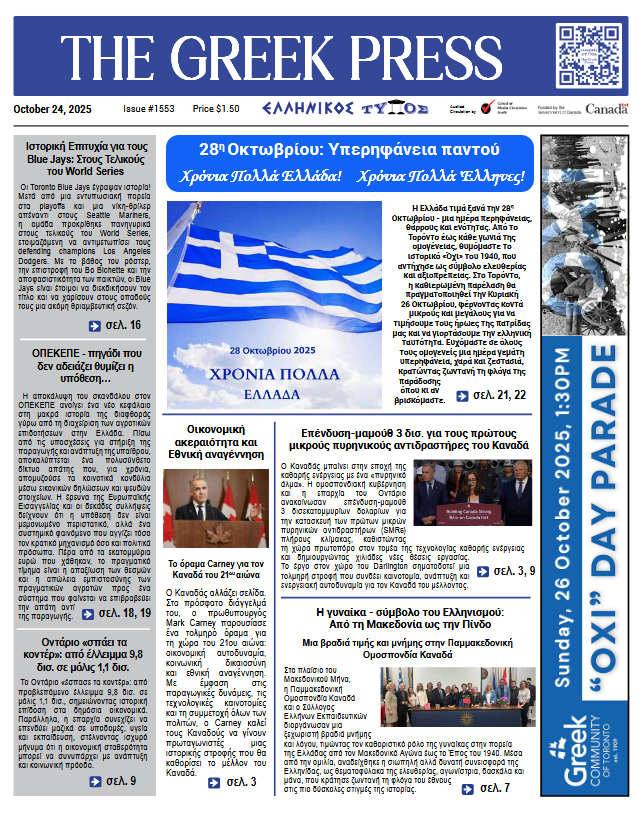.jpg) CLICK TO VIEW THE WHOLE PUBLICATION ONLINE
CLICK TO VIEW THE WHOLE PUBLICATION ONLINEHave you heard of Afong Moy? Have you heard of The Chinese Lady, a play by Lloyd Suh?
I bow my head in shame in admitting to knowing nothing about Afong Moy or the play about her life. Both those deficiencies were cured by seeing the play in a beautiful and moving production by Studio 180 Theatre and Fu-Gen Sian Canadian Theatre companies at Crow’s Theatre in Toronto. The play premiered in 2018 and has been produced across the United States.
The play is based on the incredible and deeply moving life of Afong Moy. She has been billed as the first Chinese woman to reach the United States. She was 14 years old when she was brought to the states by Nathaniel and Frederic Carne, two merchants who were looking for a way to market their products.
When we enter the tiny Studio Theatre at Crow’s we see a young Chinese woman in colorful attire seated on the stage and a Chinese man on the side. Afong Moy (Rosie Simon) “tells” us her story with the “irrelevant” (her word) Atung (John Ng) acting as her interpreter and assistant. Afong Moy does not know English but speaks beautifully. What she says are the words put in her mouth by her employers and her assistant Atung.
One of the ironies of the play is that we rarely if ever hear Afong Moy’s own thoughts or own “voice”. Atung tells us that he really interprets what Afong is saying rather than translating it. We learn a lot about Afong Moy but we are not sure that what she says are her own words or her own thoughts.
On her arrival in the United Sates, Afong Moy tells us she was put on display wearing beautiful Chinese clothes and she told Americans about life in China. She described how her feet were bound when she was a child, breaking and resetting her bones for a year to create small feet. She displays how she walks in tiny, elegant steps as a result. That is what the higher social classes do.
She shows us how she eats with chopsticks in contrast to the barbaric forks that are just good for stabbing used in America. She drinks tea and gives us a good idea of what she did for the Carnes. Atung provides some humour as he stands by her in her show for the merchants.
The play advances through the 19th century. At age 16, when she was supposed to be returned to Chine, she is not. She tells us about some strange American customs like sleeping on a raised bed and she goes on tour around major cities on the east coast.
She explains some Chinese traditions may seem controversial but America has some entrenched and perhaps controversial traditions like women wearing corsets and the slave trade. She meets President Andrew Jackson who she thinks is the Emperor of the U.S. Later she finds out that he is the President and may have a controversial history in his treatment of native Americans.
Afong Moy is dismissed by the Carnes brothers and hired by P. T. Barnum who uses her as an item of interest in his American Museum show. She has become almost a freak show but we argue that she was that from the beginning. She visits the Cincinnati zoo and wonders if she is in a cage. If so, “what sort of an animal am I” she wonders - a swan or a peacock, with adornments to be admired? Or is she an ox or a donkey or some other beast of burden. She is none of these but a human being, she tells us, and this seems to be her realization of her life in the U.S.
The California Gold Rush brought thousands of Chinese men who ended up working on the construction of the railroad, she informs us. She refers to Lincoln’s Gettysburg Address and the Liberty Bell of Philadelphia. Is there liberty and equality in America?
Most of the time, however, Afong Moy smiles affably like a woman promoting a product in a modern day commercial. All she does is perform. She tells us about the Chinese Exclusion Act of 1882 that lasted into the twentieth century. We do not know when Afong Moy died but Suh through her, makes sure we have no doubts about racism in America.
Simon gives a stunning performance as the restrained, affable and smiling Afong Moy while underneath there is much ugliness that we see only indirectly. Ng joins her in performing superbly in this simple and wonderful play. Director Marjorie Chan keeps the story interesting and entertaining as we watch the surface of a story while knowing all the time the deeper strata of a deeper life hidden by a stage performance.
The Chinese Play by Lloyd Suh in a production by Studio 180 Theatre and Fu-Gen Sian Canadian Theatre continues until May 21, 2023, at Streetcar/Crowsnest Theatre, 345 Carlaw Avenue, Toronto, Ontario. http://crowstheatre.com/






























